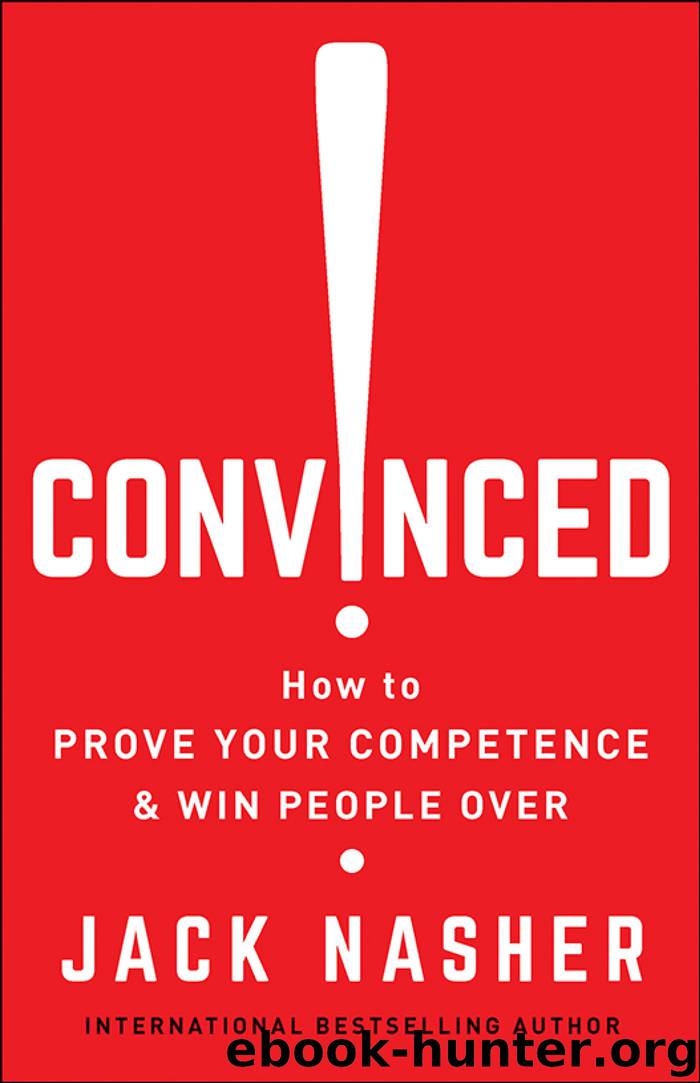Convinced! by Jack Nasher

Author:Jack Nasher
Language: eng
Format: epub
Publisher: Berrett-Koehler Publishers
Published: 2018-03-21T16:00:00+00:00
CHAPTER 8
STATUS
THE POWER OF SYMBOLS
The world more often rewards the appearances of merit than merit itself.
—FRANÇOIS DE LA ROCHEFOUCAULD
Image Consultancy for Consultants
You can become a management consultant right after elementary school—even if you didn’t graduate. In contrast to auditors, doctors, or lawyers, consultants don’t need any formal training. Specialized knowledge plays practically no role in their services—not the ideal condition to be taken seriously and justify high fees. To avoid this impression, the “world’s newest profession,” as Oxford researcher Chris McKenna refers to management consulting, has deliberately copied the language and symbols of other professions that already have a high status.1 From the outset, these consultants appeared as “Doctors of Management,” describing their activities through medical analogies. By doing so, they added a coating of scientific character to their “expert knowledge” and assured their clients that they would act conscientiously and discreetly, just like an actual doctor.
However, Marvin Bower, a lawyer and the long-standing head of McKinsey & Company, felt that this analogy, and the accompanying portrayal of his clients as “sick enterprises,” had a negative ring. So when he became the company’s managing director in 1950, he drew parallels between his profession and other fields: the scientific excellence of engineers, the numerical accuracy of economists, and—most importantly—the high status of lawyers. He thought this elevated status would create a perception of professional qualification, which would in turn justify astronomical fees and also grant access to the highest levels of companies’ hierarchies. McKinsey praised itself at the time: “We serve business concerns on management problems in much the same way that the larger law firms serve them on legal problems.” Bower’s strategy worked, and McKinsey’s success radiated out to the whole profession—consultants today enjoy a stature similar to lawyers.
Status is not an invention of business and not even of civilization, but it is deeply rooted in nature. Just think of chickens and their “pecking order.” Canadian psychologist Jordan Peterson draws attention to lobsters, which have occupied the bottom of the ocean for over 300 million years.2 Once a lobster is defeated in combat by another lobster, its chances to win the next fight diminish significantly—even against previously defeated lobsters. In fact, the lobster’s brain dissolves, developing a new, subordinate brain. Peterson adds: “Anyone who has experienced a painful transformation after a serious defeat in romance or career may feel some sense of kinship with the once successful crustacean.”
When you are low in the status hierarchy—male or female—you have, as Peterson aptly describes, “nowhere to live (or nowhere good). Your food is terrible, when you’re not going hungry. You’re in poor physical and mental condition. You’re of minimal romantic interest to anyone, unless they are as desperate as you. You are more likely to fall ill, age rapidly, and die young, with few, if any, to mourn you.” Peterson points out, “When the aristocracy catches a cold, as it is said, the working class dies of pneumonia.” The same is true in the animal kingdom: when there is an avian disease, it is the birds lowest in the pecking order that die first.
Download
This site does not store any files on its server. We only index and link to content provided by other sites. Please contact the content providers to delete copyright contents if any and email us, we'll remove relevant links or contents immediately.
Hit Refresh by Satya Nadella(9138)
The Compound Effect by Darren Hardy(8972)
Change Your Questions, Change Your Life by Marilee Adams(7786)
Nudge - Improving Decisions about Health, Wealth, and Happiness by Thaler Sunstein(7710)
The Black Swan by Nassim Nicholas Taleb(7134)
Deep Work by Cal Newport(7087)
Rich Dad Poor Dad by Robert T. Kiyosaki(6639)
Daring Greatly by Brene Brown(6515)
Principles: Life and Work by Ray Dalio(6455)
Playing to Win_ How Strategy Really Works by A.G. Lafley & Roger L. Martin(6314)
Man-made Catastrophes and Risk Information Concealment by Dmitry Chernov & Didier Sornette(6022)
Big Magic: Creative Living Beyond Fear by Elizabeth Gilbert(5777)
Digital Minimalism by Cal Newport;(5765)
The Myth of the Strong Leader by Archie Brown(5510)
The Slight Edge by Jeff Olson(5419)
Discipline Equals Freedom by Jocko Willink(5390)
The Motivation Myth by Jeff Haden(5213)
The Laws of Human Nature by Robert Greene(5211)
Stone's Rules by Roger Stone(5088)
